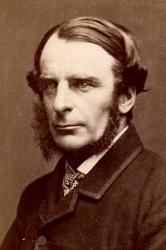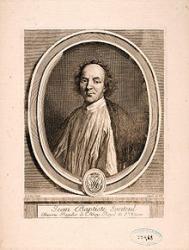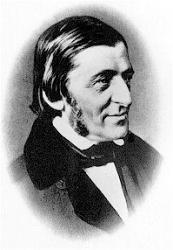Planning worship?
Check out our sister site, ZeteoSearch.org,
for 20+ additional resources related to your search.
- |
User Links
Person Results
Richard Burnham

1749 - 1810 Author of "Jesus, Thou art the sinner's friend" in Songs for the Lord's House Burnham, Richard, b. 1749, d. 1810, was for many years pastor of a Baptist Church in London, first in Little Chapel Street, and afterwards in Grafton Street, Soho. He is said to have been an excellent preacher. His hymns, 452 in all, were published as follows:—
New Hymns on Divers Subjects, Lond., Gilbert and Plummer, 1783. This contained 141 hymns. A 2nd edition with 74 additional hymns as New Hymns on Various Subjects (same publishers), 1785. To this was added New Hymns on Divine Love, chiefly designed for Love Feasts or Christian Societies (25 hymns and 2 poetical pieces), Lond., W. Smith, but no date (cir. 1787). The 3rd edition of the Hymns, &c, is dated 1794, the 4th 1796, and the 5th, 1803. This last contains 452 hymns. In addition 3 hymns were printed at the end of a Sermon on Believer's Baptism, 1805, and many others on leaflets which have not been reprinted.
Burnham's hymns rank with the most intensely Calvinistic in the English language, and have been much used by congregations of Calvinistic sentiments. In the last edition of Gudsbey’s Selection there are 20; in Denham's Selection 82; and in Snepp's Songs of Grace & Glory. 10. His best known hymns are, “Jesus! Thou art the sinner's Friend," and "O glorious God of grace." The following, from the editions of his Hymns, &c, indicated in brackets, are still in common use:—
1. Free grace, melodious sound [1794]. Grace.
2. God in Three appears all glorious [1796]. Holy Trinity.
3. Great Jehovah's love endureth [1794]. God unchangeable.
4. How truly glorious is the love [1803]. Love of God. In Snepp's Songs of Grace & Glory, 1872, this is altered by Miss Havergal.
5. Jesus draws the chosen race [1794]. Election.
6. Love will I ever sing [1796]. Love of God.
7. Now 1 know the great Redeemer [1794]. The Advocate.
8. The goodness of our glorious God [1794]. Divine Goodness.
9. The people of the Lord were chosen, &c. [1796], Election.
10. Who can e'er fathom God's rich love [1803]. Love of God. [Rev. W. R. Stevenson, M.A.]
-- John Julian, Dictionary of Hymnology (1907)
Richard Burnham
Charles Kingsley

1819 - 1875 Author of "From Thee all skill and science flow" in The American Hymnal for Chapel Service Kingsley, Charles, M.A., son of Charles Kingsley, of Battramsley, in the New Forest, was born June 12. 1819. at Home Vicarage, Devon. In 1838 he entered Magdalene Coll. Cambridge, and graduated as first class in classics, and senior optime. Subsequently Rector of Eversley 1814-1875; Canon of Chester 1869-1873; and Canon of Westminster 1873-1875. He held also other important appointments. He died at Eversley, Jan. 23, 1875. Canon Kingsley's prose works are too well known to be enumerated here, and his poetical productions have little in common with hymnology. Three of his pieces have come into use as hymns:—
1. Accept this building, gracious Lord. [Hospitals.] "Mrs. Kingsley's account of this hymn is:—
"On the 4th of December [1871], Lord Leigh laid the foundation stone of the working men's block of the Queen's Hospital at Birmingham with masonic honours, and the following simple hymn, which Mr. Kingsley had been requested to compose for the occasion, was sung by a choir of 1,000 voices:—
'Accept this building, gracious Lord,
No temple though it be;
We raise it for our suffering kin,
And so, good Lord, to Thee.'"
The hymn in full follows in 6 stanzas of 4 lines. (Charles Kingsley: His Letters and Memoirs of his Life. 1876, vol. ii., p. 370.) From this the hymn, well-known in American collections and in a few in Great Britain, “From Thee all skill and science flow," is taken. It is composed of stanzas iii.-vi.
2. My fairest child, I have no song to give you. [Purity and Courage.] Appeared in his Andromeda and Other Poems, 1858, p. 64, in 2 stanzas of 4 lines and entitled "Farewell." In the Life and Works of Kingsley, Poems, vol. 16, 1902, it is given in 3 stanzas of 4 lines, and inscribed to "C. E. G." and the appended date is "February 1, 1856." The addition of the extra stanza, as given in Mrs. Kingsley's Charles Kingsley: His Letters, &c,
1876, vol. ii., p. 236, is thus explained: "The Farewell' to his niece Mrs. Theodore Waldron, then Charlotte Grenfell, was written this year [1856], and as the second verse, by some mistake, was not published, it is given entire here." At the end of the poem the place and date are given as "Ray” Lodge, 1856." The lines so frequently included in hymnals for Girls' High Schools, "Be good, sweet maid, and let who will be clever," are from this poem.
3. Who will say the world is dying [The Coming Kingdom.] In his Andromeda and Other Poems, 1858, p. 123, in 3 stanzas of 8 lines and entitled "The World's Age." is dated 1849. In Horder's Worship Song, 1905.
--John Julian, Dictionary of Hymnology, New Supplement (1907)
Charles Kingsley
Ilyas Saleh
1839 - 1885 Person Name: الياس بن موسى بن سمعان صالح Author of "لم بفعل الشر يا جبار تفتخر" in بهجة الضمير في نظم المزامير (Psalter) إلياس بن موسى بن سمعان صالح
المعروف بإلياس صالح اللاذقي
Syrian poet, writer, and historian.
Ilyas Saleh
W. Wheal
1690 - 1727 Composer of "BEDFORD" in Songs for the Lord's House William Wheal (Weale) c. 1690-1727 was the organist at St. Paul's, Bedford. He graduated with a Bachelor's in Music from Cambridge in 1719. The tune BEDFORD appeared in the "Psalm Singer's Magazine" of 1729, but it was probably first published earlier. It appears in The Divine Musick Scholars Guide by Francis Timbrell, which has an unknown date of publication, but copies found in personal libraries have dates beginning in 1723.
Dianne Shapiro, from "The Musical Times" Vol. 49, #781 (Mar. 1, 1908) pp. 165-169
W. Wheal
George Hickes
Author of "Lord, who shall dwell above with thee" in The Oxford Hymn Book
George Hickes
William Weale
Person Name: William Wheale Composer of "BEDFORD" in The Hymnal See Wheall, W. (William), c. 1690-1727
William Weale
Jean-Baptiste de Santeul

1630 - 1697 Person Name: Jean Baptiste de Santeüil Author of "O Sion, open wide thy gates" in The Hymnal of the Protestant Episcopal Church in the United States of America 1940 Santeüil, Jean-Baptiste de, was born in Paris of a good family on May 12, 1630. He was one of the regular Canons of St. Victor, at Paris, and, under the name of Santolius Victorinus, was distinguished as a writer of Latin poetry. Many of his hymns appeared in the Cluniac Breviary 1686, and the Paris Breviaries 1680 and 1736, and several have been translated into English, and are in common use in Great Britain and America. He was very jocose in disposition and singular in his habits. When on a journey he died at Dijon, Aug. 5, 1697. His Hymni Sacri et Novi were published at Paris in 1689, and again, enlarged, in 1698. [George Arthur Crawford, M.A.]
--John Julian, Dictionary of Hymnology (1907)
Jean-Baptiste de Santeul
Ebenezer S. Oakley

1865 - 1935 Author of "Enduring Soul of all our life" in Hymns of the Kingdom of God Oakley, Ebenezer Sherman, M.A., son of the Rev. Henry Oakley, Congregational Minister, was b. Dec. 24, 1865, at Richmond, Yorks. He studied in arts at Glasgow Univ., and in theology at Airedale College, Bradford, and the Univ. of Giessen, and took his M.A. at the Univ. of Allahabad in N. India. He is now (1906) missionary of the L.M.S. at Almora in N. India, and Principal of Ramsay College there. He contributed three hymns to Dr. John Hunter's Hymns of Faith and Life, 1889 and 1896, from which Nos. 1 and 2 passed into the Public School Hymn Book, 1903, and Worship Song, 1905.
1. Enduring Soul of all our life. [Whitsuntide.] Written 1885; in Hunter, 1889, No. 176.
2. In life's earnest morning. [Help in God.] "Written 1885; in Hunter, 1889, No. 661, entitled Student’s Hymn.
3. 0 Holy Child of Bethlehem. [Devotion to Christ.] In Hunter, 1896, No. 360. [Rev. James Mearns, M.A.]
--John Julian, Dictionary of Hymnology, New Supplement (1907)
Ebenezer S. Oakley
Robinson Potter Dunn
1825 - 1867 Person Name: R. P. Dunn Translator of "Jesus, our fainting spirits cry" in Songs for the Lord's House Dunn, Robinson Porter, D.D., an American Baptist, born in 1825; was for some time Professor in Brown University, Providence, Rhode Island; and died Aug. 28, 1867. His hymns, mainly translated from the Latin and other sources, include, "No, no, it is not dying"; "Jesus, Jesus, visit me"; "Jesus, our fainting spirits cry"; "We sinners, Lord, with earnest heart" (part of “Jesus, our fainting spirits cry," q.v.). These translations appeared in some of the American hymn-books, and are in common use.
-- John Julian, Dictionary of Hymnology (1907)
===================
Dunn, R. Potter, p. 316, ii. Dr. Dunn was an American Presbyterian, and not Baptist, minister, and was ordained Nov. 1,1848, by the Presbytery of West Jersey as Pastor of the First Presbyterian Church, Camden, N. J. He assisted in the compiling of the Sabbath Hymn Book, 1858. Several of his translations from the German were included in Sacred Lyrics from the German, Phila., 1859. [Rev. L. F. Benson, D.D.]
--John Julian, Dictionary of Hymnology, New Supplement (1907)
Robinson Potter Dunn
Ralph Waldo Emerson

1803 - 1882 Person Name: R. W. Emerson, 1803-1882 Author of "So nigh is grandeur to our dust" in The Sunday School Hymnary Emerson, Ralph Waldo, son of an Unitarian Minister, was born at Boston, U.S., May 25, 1803. He was educated for the Unitarian Ministry, and acted, 1829-32, as one of their ministers. Ultimately he left the ministry, and devoted himself to lecturing and literature. As a philosopher, essayist, and poet he rose to a distinguished position. He died at Concord, Massachusetts, April 27, 1882. His published works include Poems, 1846; Orations, Lectures, and Addresses, 1844; Representative Men, 1850; English Traits, 1856, &c. His hymns are not numerous.
They include:—
1. Out from the heart of nature rolled. The Everlasting Word. This is part of his poem The Problem, published in the Dial, July, 1840; and then in the 1st ed. of his Poems, 1846. It was included in the Hymns of the Spirit, 1864, No. 636; and Martineau's Hymns, &c, 1873, No. 112.
2. We love the venerable house. The House of God. Written in 1833, for the Ordination of the Rev. Chandler Bobbins, who succeeded Emerson as Minister of the Second (Unitarian) Church, Boston. It is in the Hymns of thd Spirit, 1864, No. 224; and Martineau's Hymns of Praise and Prayer, 1873.
-- John Julian, Dictionary of Hymnology (1907)
Ralph Waldo Emerson


 My Starred Hymns
My Starred Hymns

